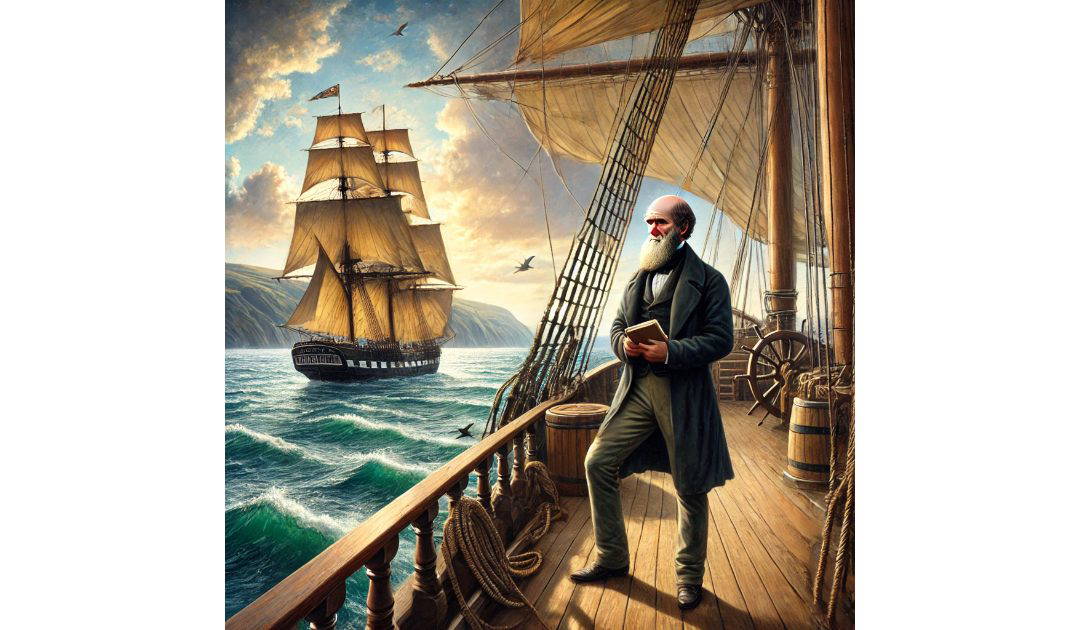On 27th December 1831 HMS Beagle sailed from England with Charles Darwin onboard, heading for South America. Charles Darwin was an English naturalist, geologist, and biologist, best known for his contributions to the understanding of evolution. Born on February 12, 1809, in Shrewsbury, England, Darwin grew up in a well-to-do family. He initially studied medicine at the University of Edinburgh but soon shifted his focus to natural history, a decision that would shape his future.
Darwin’s voyage aboard the HMS Beagle lasted nearly five years. The expedition’s primary purpose was to survey the coastlines of South America, but it provided Darwin with a unique opportunity to observe a variety of species and ecosystems. His observations of the diverse flora and fauna, particularly in the Galápagos Islands, led him to question the prevailing notions of species permanence.
Upon returning to England in 1836, Darwin began to formulate his ideas on natural selection, a process he described as the mechanism by which evolution occurs. He posited that species evolve over time through a struggle for existence, where individuals with advantageous traits are more likely to survive and reproduce. This concept was revolutionary, challenging the traditional views of creationism that dominated scientific thought at the time.
Darwin’s groundbreaking work culminated in the publication of “On the Origin of Species” in 1859. This seminal book laid out his theory of evolution by natural selection, providing a wealth of evidence from various fields, including geology, paleontology, and comparative anatomy. The book sparked widespread debate and controversy, but it also laid the foundation for modern evolutionary biology.
In addition to “On the Origin of Species,” Darwin wrote several other important works, including “The Descent of Man,” where he explored the implications of evolution for human beings, and “The Expression of the Emotions in Man and Animals,” which examined the evolutionary basis of emotions. His meticulous research and observations established him as one of the most influential scientists in history.
Despite facing criticism and opposition, especially from religious groups, Darwin’s ideas gradually gained acceptance within the scientific community. His work transformed the way we understand life on Earth, emphasizing the interconnectedness of all living organisms and the dynamic nature of species.
Charles Darwin passed away on April 19, 1882, but his legacy endures. He is often regarded as the father of evolutionary biology, and his theories continue to shape scientific inquiry today. The impact of his work extends beyond biology, influencing fields such as psychology, anthropology, and ecology. Darwin’s life and contributions remind us of the power of observation, inquiry, and the willingness to challenge established beliefs in the pursuit of knowledge.
Darwin wielded reason to challenge faith, much as Galileo and others had in astronomy. Fire and Earth, the second book in the Sir Anthony Standen Adventures has the conflict between faith and reason at its heart.

